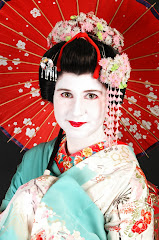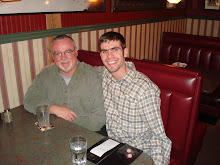In discussing the turmoil of the Chinese, Japanese and Filipino people, Takaki and Spring want their audience to realize that the struggles and hardships that these groups had to endure are not all that different from what members of the black and Native American communities experienced. Members of each one of these groups of Asian descent could not acquire US citizenship nor could they escape from racial bigotry. They worked long hours on the fields, in the mountains, and on the railroad tracks for very little compensation and certainly without any recognition. Another key element of the Asian American strife was the limitations and political/legislative "red tape" that prevented all educational opportunities for higher learning. The fact that many of these individuals remained in America for so long and under such unjust treatment is surprising to me, but then again, I have very little knowledge as to what their lifestyles were like in China, Japan and the Philippines.
essential quotations:
"Were the Chinese to amalgamate at all with our people, it would be the lowest, most vile and degraded of our race, and the result of that amalgamation would be a hybrid of the most despicable, a mongrel of the most detestable that has ever afflicted the earth" (Spring, 73).
[It is incredible that a comment like this one was commonplace. This is how Europeans (and many Americans today) feel about the Chinese and other cultures of Asian descent. These biting words most vividly show the absolute hatred and loathing that existed between Chinese and European interactions.]
"Chinaman [is] a lithe, sinewy creature, with muscles like iron, and almost devoid of nerves and sensibilities. His ancestors have also bequested to him the most hideous immoralities. They are as natural to him as the yellow hue of his skin, and are so shocking and horrible that their character cannot even be hinted" (Spring 73).
[Here is another quotation that has taken on a life of its own, as these stereotypes have been accepted versus condemned by the common man during the late 19th century and early 20th century. The dehumanization of the Chinese people is uncalled for and a means of instilling fear into the minds and hearts of Chinese immigrants.]
"...guard well the doors of our public schools that they [the Chinese] do not enter. For however stern it might sound, it is but the enforcement of the law of self-preservation, the inclination of the doctrine of true humanity and an integral part of the iron rule of right by which we hope presently to prove that we can justly and practically defend ourselves from this invasion of Mongolian barbarism" (Spring, 78).
[It is amazing how much weight the words "barbaric" and "savages" take on, especially when used to describe an entire race of humans. This quotation reminds me that the Chinese were not welcome one bit in America and that since day 1, American life was HELL.]
"Because of our family's poverty, you went out of the country to make a living. You still haven't made any money during all of these twenty years? I am afraid that you are Americanized and totally forgot about us" (Takaki, 220).
[There is definitely a fear of assimilation that is evident in a Chinese man's letter to his brother overseas in America. I now understand the severity of losing one's customs and culture after being told how you will dress, where you will live, and what little tolerance there will be for your own personal culture. It's always interesting to watch which family's rise up or fall under such dismal conditions.]
"We worked like machines. For 200 of us workers, there were sever or eight lunas and above them was a field boss on a horse. We were watched constantly. We had to work in the canefields, cutting cane, being afraid, not knowing the language. When any haole or Portugese luna came, we got frightened and thought we had to work harder or get fired. The luna carried a whip and rode a horse. If we talked too much the man swung the whip. He did not actually whip us but just swung his whip so that we would work harder. [The lunas] never called a man by his name. Every worker was called by a number. Always by the bango, 7209 or 6508 in that manner. And that was the thing I objected to. I wanted my name, not the number" (Takaki, 255).
[The reason I chose this quote is that I felt that it provided me with a much more subjective interpretation of field work for Asian Americans alike. Much of my attention was drawn not to the physical brutality of the lunas, but the psychological damage that referring to someone as a number or letter can have on the individual's psyche and overall well-being.]
critical questions:
question #1: I never realized how much of an impact the bombing of Pearl Harbor actually had on the United States' personal relationship with Japan. I would be interesting to know whether "bad blood" still exists between nations and whether or not President Obama is committed to restoring/or maintaining a favorable relationship with an increasingly powerful country?
question #2: (this is a paraphrasing of the question I asked in class, but I believe there is more to the answer of this question than what my professor and classmates shared) Why are Asian Americans perceived by the general public (including the media) as incredibly intelligent and destined to hold careers as scientists, mathematicians, martial artists, and businessmen/women? Likewise, why do we assume that the Chinese and Japanese and Korean people eat and enjoy the food that is served in Asian American restaurants? Just some food for thought...
Subscribe to:
Post Comments (Atom)















No comments:
Post a Comment